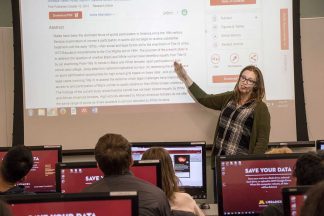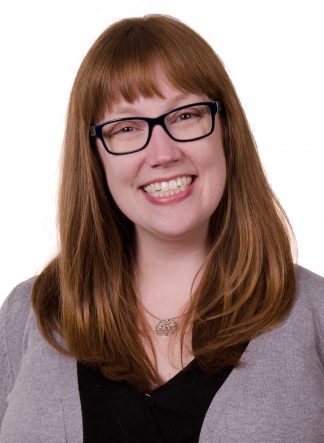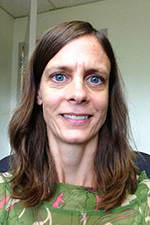By Allison Campbell-Jensen
Helping first-year students develop information literacy skills needed to succeed in college and beyond is the broad goal of the First Year Writing Course. As the program has evolved over the last few years, the partnership between University Libraries staff and writing instructors has also evolved to ensure that students are learning these critical thinking skills.
In years past, University of Minnesota Libraries staff would schedule a workshop to prepare students to write a research paper — teaching such skills as mind-mapping, identifying key words, and finding places to search for materials. Those skills are still important, says Kris Cory, First Year Writing Associate Director, but “they are now framed within the broader goal of supporting the development of information literacy, [and they are] more deeply integrated into the curriculum.”
Lindsay Matts-Benson, an Instructional Designer for the Libraries, is excited about the integration. And Cory appreciates librarians’ flexibility.
“As we’ve stepped in and made changes, they have been understanding,” she says. “One of the things that is deepening our partnership with the librarians is respecting each other’s expertise and building these [information literacy] activities in the curriculum.”
Revised role for librarians
Library instructors will be paired with writing instructors, Matts-Benson says, to respond to student needs.
“Just being that course’s librarian, essentially,” she says of the revised role. “Getting feedback to those students, being a touchpoint, being a referral point to those students, so it’s personalizing it in a way we haven’t in the past.”
That said, the writing instructors may choose just one or several activities facilitated by librarians or may even teach the information literacy activities on their own, says Mariya Gyendina, a Learning & Inclusion Strategist for the Libraries. “We don’t know which instructors will use how much support,” she says, “but hopefully by the end of the semester, we will have a better idea of how it works out.”
Information literacy activities
This course is “really setting a foundation for their future success at the University.”
—Lindsay Matts-Benson
The librarians have developed new information literacy activities for the students. Among them, Matts-Benson says, is one based on a “conceptual understanding that scholarship is a conversation. . . . students take one of the course readings and put that in conversation with who the author cites and who did those authors cite? And who cites this author?” The results, she says, can bring in a lot of layers.
In another information literacy activity, students rank eight sources from best to worst based on a research question.
“Everything from scholarly articles and books, to news articles from different types of news organizations, some left-leaning, some right-leaning, tweets, Wikipedia articles, videos,” Matts-Benson says. “Getting them to see how there is no such thing as a bad source,” depending on the question. Then they will ask students to look for gaps in the conversation. “If they had to add to the breadth of research on this topic,” she says, “what would they be looking for?”
Foundation for student success
First Year Writing has added sections, so more librarians have been recruited to help teach. Librarians that facilitate these activities will have a more visible presence in Canvas, the University’s Learning Management System, Gyendina says, thus creating more connections between students and librarians.
Matts-Benson cites a study that showed that if students interact with the Libraries, they are likely to be more successful. “And they’re not only getting the information literacy piece, there are modules around academic integrity, learning about plagiarism — being a good scholar from the get-go,” Matts-Benson says.
“It’s really setting a foundation for their future success at the University.”







